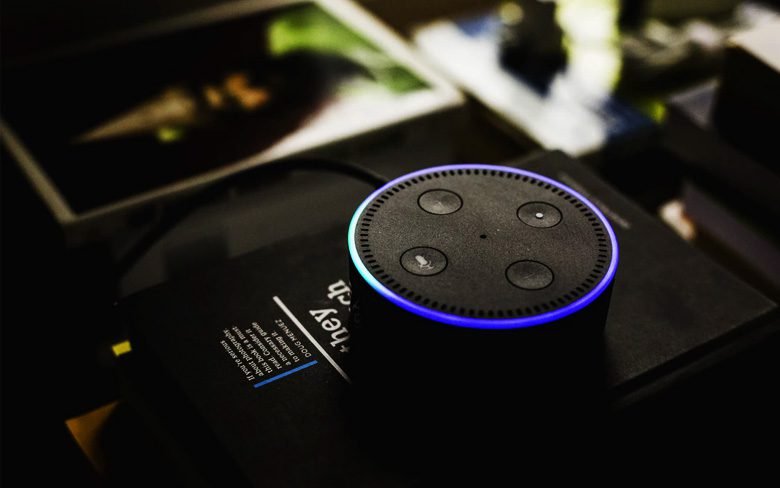Highlight
- Voice AI for Seniors: Revolutionizing accessibility by empowering older adults with independence, safety, and emotional connection.
- Smart Companionship: From reminders to conversations, Voice AI enhances daily life, mental health, and cognitive engagement for seniors.
- Future-Ready Innovation: Emotionally aware, privacy-focused, and personalized AI solutions are redefining elder care and accessibility.
My grandmother has been an invaluable teacher to me about compassion, perseverance, and the simple benefits of warm conversation. Voice artificial intelligence is projected to mature beyond being just an excellent tool for seniors; it is also becoming a companion, an assistant, and a link to greater independence. The accessibility revolution that voice AI is spurring is intensely personal, as well as vastly important.

Why Voice AI is Important to Older Adults
Physical Limitations: Aging often comes with reduced mobility, changes in vision, and an inability to manipulate small touchscreen devices. Voice interfaces feel more natural and more convenient.
Cognitive Assistance: Reminders, memory assistants, and talking agents can facilitate daily task management, medication reminders, and cognitive engagement.
Social Connectivity: Voice assistants can stay connected — call relatives, share current events, and listen to an anecdote from your grandchild.
Independence: A dependable voice assistant can coordinate to help seniors self-manage much of their daily living without a consistent need for assistance.
Building Voice AI for Seniors: Key Technical Elements
Automatic Speech Recognition (ASR): Converts the spoken word into textual messages. Models may need to be able to recognize aged, sometimes accented, and/or unhurried speech.
Natural Language Understanding (NLU): Interprets intent, even with fragmented or unclear speech.
Memory Layers: Storage of personal information such as routines, preferences, past conversations, and health-related reminders.
Dialog Management / Agent Logic: Multi-turn conversation, pre-planning reminders, clarifying questions.

Text-to-Speech (TTS): Provides output in a relaxing, unaffected, customizable voice (tone, speed) focused on the listener’s ease of experience.
Use Cases in the Real World for Seniors
- Medication Management
The assistant sets reminders (“It’s time for your blood pressure medicine”), checks if the user took their medicine, and can also log adherence.
- Routine Assistance
Provides reminders to follow through on appointments, hydration, walking, or exercising on a daily basis.
Structure the day with verbal prompts, commands, and feedback.
- Social Interaction
Users can call family or friends.
Users can listen to podcasts, audiobooks, or share a story.
- Emergency Help
The assistant can connect users to fall detection sensors or wearables to call caregivers or emergency contacts.
Initiates check-in, (“I haven’t heard from you today – do you need to check in?”).
- Cognitive Stimulation

Conversational quizzes, memory games, or storytelling stimulate cognition, as well as reduce feelings of loneliness.
Benefits of Voice AI for Seniors
Enhanced Autonomy: Reduces reliance on caregivers for simple daily tasks.
Better Mental Health: Regular interaction, reminders, and check-ins reduce isolation.
Greater Safety: Proactive reminders and emergency (potential call) procedures are preventive measures.
Ease of Use: People use their voice (it is intuitively preferred for many seniors) instead of taps, whether on a screen or buttons in a device.
Challenges & Ethical Considerations
Privacy & Data Security: Continuous listening = collection of sensitive information. Does the system have robust encryption? Do users consent?
Voice Recognition Errors: Speech may be slurred, quiet, or inconsistent, leading to misrecognitions that can frustrate or endanger users.
User Reliance: Users may become socially isolated if they overly rely on AI, at the expense of social engagement with others.

Affordability: Smart devices like speakers may remain out of reach for some older adults, and even if they have the device, it isn’t uncommon for someone to have to set up the device and offer ongoing maintenance.
The Ethical Use of AI: Ensuring that any suggestions made by the assistant do not replace human decision-making, particularly in healthcare situations.
Current Platforms and Innovations
- Amazon/ Alexa Care Hub: Check-in, routine, and alerts for caregivers.
- Google Assistant: Used primarily for medication reminders but also as a form of communication for family members and a routine setter.
- Some specialized startups are working on building voice agents customized for senior care, with memory and empathy built in.
The Future Landscape: What to Expect
- Emotionally-Aware Voice AI: Detecting sadness, confusion, and agitation and responding with empathy or alerting a caregiver.
- Multimodal interfaces: Voice plus screen to show reminders, photos, or live video calls.
- On-Device Processing: Running ASR and memory comfortably, keeping voice and memory private, and allowing for offline use.
- A Care Ecosystem: Connect seamlessly with health care systems, medical records, and professional caregivers.
- Personal Memory Companion: AI that can prompt and then recount and share family memories, photos, or stories to the user like a digital “memory friend.”
To sum up

Voice AI available to seniors is not just a means of comfort; it serves as a lifeline. It provides dignity, independence, and emotional support to our loved ones. As these technologies become even smarter and more in touch with people’s needs, they’re doing more than serving; they’re caring. For me, championing technologies that empower our elders is one of the most meaningful explorations. And I think we are just in the beginning stages of the accessibility revolution that needs to happen.
